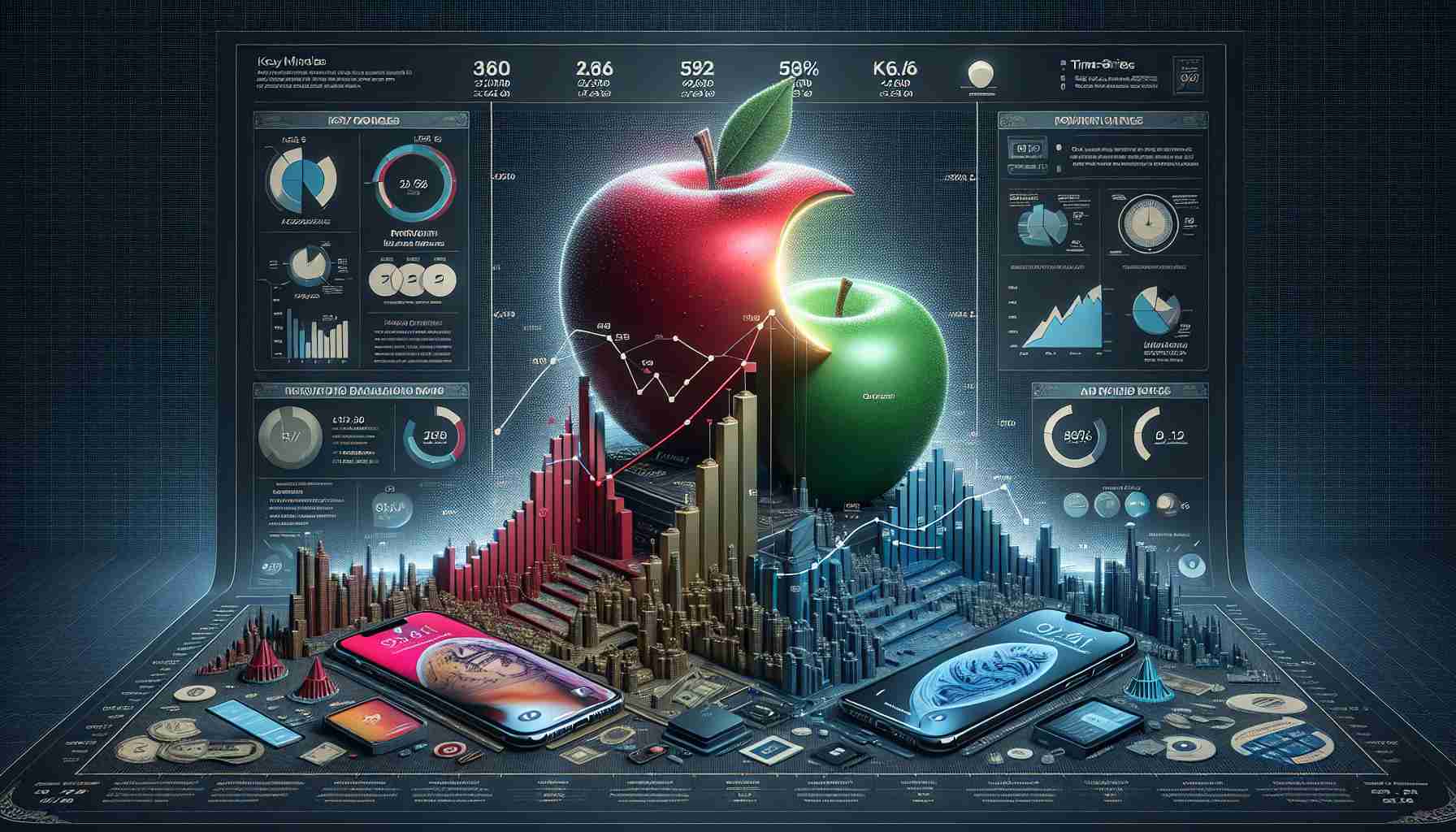In the ever-evolving tech industry, Apple continues its climb to unprecedented heights, leaving competitors, notably Samsung, in its wake. With the latest reports showcasing Apple’s record-breaking revenue and shipment numbers as of September, it is clear that the tech giant is solidifying its dominance in the market. Meanwhile, Samsung faces significant challenges as it struggles to maintain its position.
Apple’s Strategic Advantage
Over the past decade, Apple’s influence has grown exponentially, with the company repeatedly breaking new ground in revenue generation and shipment volumes. These achievements underscore Apple’s ability to maintain its status as a leading brand while strategically positioning itself to explore and expand into emerging sectors. As Apple makes these advances, it aims to further weaken competition within the smartphone industry.
Samsung’s Struggle in Key Markets
Despite its strong historical presence, Samsung is finding it difficult to compete with Apple’s surging sales and innovation, especially in crucial markets such as India. Apple reported unprecedented growth in the Indian market for the third quarter, pushing its smartphone market share to an impressive 71%. In contrast, Samsung’s share tumbled to 19%, marking a sharp year-over-year decline.
Future Outlook
As Apple introduces its first suite of AI tools, the gap between these two tech giants is expected to widen even further. Samsung must adapt quickly to address these growing challenges if it hopes to recapture lost ground. With Apple’s momentum showing no signs of slowing down, the coming months will be pivotal for Samsung to strategize a comeback.
The Tech Race Intensifies: Apple’s Growth and Its Ripple Effects on Global Economies
In a rapidly transforming digital landscape, Apple’s meteoric rise is reshaping not only the technology industry but also the economies and daily lives across the globe. As the company sets new milestones, its influence extends beyond the confines of consumer electronics, impacting societal norms, employment landscapes, and international market dynamics.
The Broader Economic Impact of Apple’s Dominance
Apple’s unprecedented growth creates both opportunities and challenges for various economies. Countries manufacturing Apple products, such as China and India, witness significant economic benefits through job creation and technology transfer. However, this dependency also raises concerns about economic stability and resilience in the face of geopolitical tensions, which could disrupt supply chains and local economies.
While Apple’s soaring market value boosts investor confidence, it simultaneously intensifies competitive pressures that compel other tech companies to innovate or face obsolescence. This can lead to a monopolistic market environment, stifling smaller firms and leading to reduced consumer choice.
Challenges for Local Communities and Workforces
With Apple’s dominance, there are repercussions for local companies and workforces, particularly in developing countries. The increasing automation in factories, driven by Apple’s technological advancements, might lead to job displacement in the traditional manufacturing sector. Communities are compelled to adapt to evolving job markets, with a growing emphasis on digital skills and education to remain relevant.
The Environmental Debate: Innovation vs. Sustainability
Apple’s aggressive innovation paradigm raises critical questions about environmental sustainability. As tech products become obsolete more quickly, electronic waste becomes an increasingly severe issue. Although Apple introduces initiatives to recycle products and reduce carbon footprints, the overall environmental impact remains an ongoing concern. The balance between technological progress and sustainable practices continues to stir public and scientific discourse.
Advantages and Disadvantages of Apple’s Pervasiveness
Advantages:
– Economic Growth: Countries benefit from job creation and supply chain expansion.
– Technological Advancement: Innovations drive new products and services, improving consumer lives.
– Increased Competition: Forces competitors to innovate, though this is a double-edged sword.
Disadvantages:
– Economic Dependency: Countries reliant on Apple’s market can be vulnerable to external risks.
– Job Displacement: Automation could lead to significant job losses without sufficient reskilling initiatives.
– Environmental Concerns: Increased e-waste poses sustainability challenges.
Exploring the Future: Is Diversification Key?
Given Apple’s significant influence, would an economic diversification strategy help mitigate potential risks for supply chain countries and affected industries? Diversification can reduce dependency on a single corporate giant, fostering resilience against market fluctuations. It could also encourage sustainable and equitable growth models.
Related Resources
– For more information on how the technology sector influences global markets, visit Apple.
– Explore insights on sustainable technology at Greenpeace.
In conclusion, while Apple’s expansion brings exciting innovations, it also poses complex challenges that must be carefully managed to ensure balanced growth and sustainability in the global landscape.


























